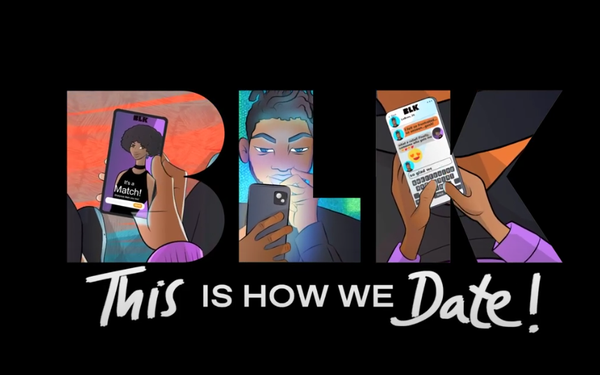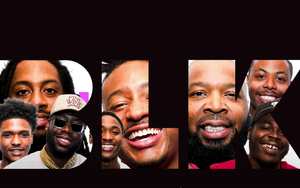
The struggles of dating apps to appeal to disheartened
Gen Z users have been well-documented. But there’s been less focus on how the significant number of younger users still swiping are evolving how they interact with such services.
BLK,
“the largest social and dating app for the Black community,” recently took a look at Gen Z’s evolving dating attitudes and habits with the “2025 Dating Trends Redefining How
Gen-Z Connects.” Marketing Daily caught up with Jonathan Kirkland, head of brand and marketing for BLK, to discuss the report
This interview has been edited for length and
clarity.
Marketing Daily: What trend or trends mark the most significant departure(s) for how we've understood people to interact with dating apps previously?
Jonathan Kirkland: The biggest shift we’re seeing is the evolution of dating apps into full-fledged social hubs.
advertisement
advertisement
Trends like “Crewsing,” where users log on to find
friends and build their squad, mark a significant departure from the traditional focus on romantic matchmaking. In 2024, over 30% of BLK users reported using the app to make friends, not just to date
— compared to previous years, where this figure was closer to 18%. The idea that dating apps are now being used to form broader, more diverse connections—platonic, professional, and
romantic—really challenges how we’ve historically defined their purpose.
What surprised us most was how intentional Gen-Z is about building communities. They aren’t just
looking for love; they’re looking for people who align with their lifestyle, values, and hobbies.
Marketing Daily: Of these trends, which ones may prove to be most impactful for
shaping the future of dating and the approach dating apps take to meet consumer expectations?
Kirkland: “Collabor-dating”— or dates designed around collaborating
on endeavors like making TikToks, building playlists, or co-created content — has the potential to reshape how apps position themselves entirely. As more Gen-Z users connect through creative
expression, dating apps will need to prioritize features that allow for these shared projects.
“slow dating” is also set to leave a long-term impact. Gen-Z users are demanding more
intentional and authentic connections, and apps that can foster this by encouraging deeper interactions -- through prompts, conversation tools, or virtual dates -- will lead the charge in shaping the
future of dating.

Marketing
Daily: Can you comment on the extent to which these trends are more widely applicable to dating apps in general, and to what extent they're specific to BLK's platform?
Kirkland: Some trends, like “slow dating” and “collabor-dating,” are reflective of larger cultural shifts and can apply to many platforms. Others, like
“Crewsing” and “Blaze & Bond” [the increased popularity of the app's “420” sticker, which indicated cannabis-friendliness], are deeply tied to the BLK
community.
BLK users, especially Black Gen-Z singles, bring a unique cultural lens that prioritizes community, creativity, and shared values, which makes these trends stand out more
prominently on our platform.
Marketing Daily: What are some misconceptions around dating and Gen-Z that your data helps dispel?
Kirkland: One of the biggest
misconceptions is that Gen-Z is hyper-focused on superficial connections or instant gratification. Our data shows the opposite. Trends like “slow dating” highlight that Gen-Z wants
meaningful, intentional relationships.
Another misconception is that dating apps are only for people actively seeking relationships. Compared to millennials or Gen-X, Gen-Z is far more likely
to use dating apps for purposes beyond dating. With the rise of friendship and hobby-based connections, Gen-Z is proving that apps can meet a broader range of social needs.
Marketing
Daily: How might these findings on BLK user data inform future brand messaging and marketing efforts?
Kirkland: These trends give us a blueprint for what our audience values
most: authenticity, creativity, and community. Moving forward, our marketing will lean into these themes, positioning BLK as more than just a dating app.
For example, we’ll amplify the
idea of BLK as a space for creativity and friendship, ensuring our messaging reflects the multifaceted ways people use the platform.
We’ll also focus on inclusivity, creating campaigns
that speak to unique cultural identities.